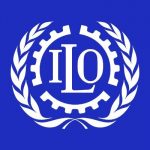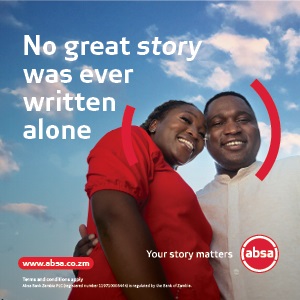
1.0. BACKGROUND
1.1 Introduction
The International Labour Organization (ILO) through the Joint United Nations Programme on HIV/AIDS (UNAIDS) Country Envelop is supporting its social partners and some civil society organisations to implement a socio-economic empowerment project aimed at HIV vulnerability reduction among Adolescent girls, young women and some young female key populations (i.e., female sex workers) in the informal sector. The project aims to reduce new HIV infections and improve HIV treatment outcomes among target population and contribute towards ending HIV/AIDS epidemic as public health threat by 2030.
This project will be implemented in line with ILO’s recommendation concerning HIV and AIDS and the World of Work, 2010 (No. 200), the ILO Code of Practice on HIV and AIDS and the ILO’s Convention 190 and its recommendation 206.
1.2 Background and Problem Analysis
Zambia, with an estimated population of 19.39 million peoplei has an adult (15-49 years) HIV prevalence of about 11.1 percent. HIV prevalence among Adolescents and Young People (AYP) aged 15-24 years is estimated at 5.6% and 1.8% for females and males respectivelyii. In 2020, the country had about 1.5 million PLHIV, 69,000 new HIV infections and 24,000 AIDS related deaths. HIV prevalence in Zambia is highest among Key Populations (KPs), it is about 48.7 percent for Female Sex Workers (FSW)iii.
The AGYW are disproportionately affected by HIV as compared to adolescent boys and young men. This is in large part due to gender inequalities, poverty, as well as socio-economic exclusions which often deprive them of their fundamental human rights and frustrates HIV prevention and treatment efforts. Zambia, through its National HIV/AIDS Strategic Framework (NASF) 2017-2021, recognises the important role of poverty alleviation and livelihoods in the fight against HIV/AIDS and promotes the building of relevant skills, improving access to credit, and building appropriate value chains and marketsiv.
The proposed project focuses on the informal sector which accounts for about 88.7 percent of the employed population in Zambia. AGYW are targeted because they are more likely to be informally employed; informal employment is at 98 percent for adolescents under the age of 15 years, 96 percent for those aged 16-25 years, and 91.3 percent for women. Informality rates also tend to increase with decline in education and welfare levels. Socio-economic empowerment of AGYW is considered because Informality is further characterised by high levels of extreme poverty with only 10.6 percent of informal workers being non-poorv. Evidence shows that economically empowered AGYW and KPs who are knowledgeable about HIV and their rights are more likely to negotiate for safe sex, avoid transactional and intergenerational sex, challenge unfair treatment in the world of work and prevent sexual, gender or HIV based violence and harassment, thereby reducing their chances of acquiring HIV
2.0 PURPOSE OF THE ASSIGNMENT
The main purpose of the assignment is to carry out a Rapid Assessment of the target communities in Lusaka and Kafue to inform the implementation of the proposed project on Socio-Economic Empowerment and HIV Vulnerability Reduction among Adolescent Girls, Young Women and Young Female Key Populations. `The assessment will be conducted in two proposed intervention sites of Kafue and Lusaka.
3.0. SPECIFIC WORK TO BE UNDERTAKEN
3.1 Tasks and Expected deliverables
The Consultant/Service provider is expected to undertake the following tasks during the assignment:
a) To conduct a Living conditions assessment (focusing on assessing food security, conditions of dwelling places, productive assests,cost of living and access to credit) in the proposed intervention and comparison sites
b) To conduct mapping of livelihoods in the proposed intervention and comparison sites
c) To assess HIV/AIDS vulnerability, will involve: establishing barriers to access and utilization of HIV/AIDS services by AGYW and KPs; and establish the extent to which Economic empowerment affects HIV/AIDS outcomes for AGYW and KPs
d) To map the existing and potential value chains for the target sites (Outline available value chains in the sites and recommend value chains for project implementation – detailing stages, costs of production, description of potential markets, description of possible value addition and related costs
e) To conduct stakeholder mapping for the intervention sites
3.2 Expected Deliverables
The consultant is expected to produce the following deliverables:
a) Description of living conditions of households in the intervention and comparison sites
b) List of available livelihoods in the intervention and comparison sites
c) Description of HIV/AIDS vulnerability in the comparison and intervention sites
d) Description of available value chains in the intervention sites and recommendations of potential value chains
e) List of stakeholders in the intervention sites
f) Provide baseline information for the project
3.3 Budget
A budget is allocated for this process and is under the full control of ILO for the engagement of the Consultant and domestic travels. Organisation of workshops and consultative meetings with stakeholders will be done by the consultant.
The Consultant is expected to provide:
- A detailed budget with consulting fees including report writing.
- A cost breakdown of the expected transport and logistics costs.
3.4 Payment schedulePayments shall be made based on the deliverables as follows:
a) 30% upon acceptance by the ILO of Inception Report
b) 45% upon acceptance by the ILO of draft report
c) 25% upon acceptance by the ILO of final with clear recommendations
3.5 Evaluation Criteria
Applications will be evaluated technically and scored based on how well the proposal meets the requirements of the summary Terms of Reference iterated above. The proposals will be evaluated using the cumulative analysis method of technical (innovation, creativity and originality) and financial scoring. The proposal with the highest cumulative scoring shall be awarded the contract.
3.6 Management Arrangements
The consultant will report to the) Project Officer- HIV and AIDS Programme. The consultant is expected to liaise closely with the ILO technical/project team in Lusaka, in relation to relevant documents and other logistical support
3.7 Profile of the consultant.
a. At least advanced university degree (i.e., Master’s Degree) in Public Health or Social Sciences
b. In-depth knowledge of HIV, Adolescents and Economic and Livelihoods
c. Strong knowledge and understanding of ILO Tripartite and Social Partners
d. Proven experience in carrying out Assessments related HIV, Adolescents, Livelihoods, value chains and stakeholder Mapping
e. Fluency in written and spoken English;
f. Strong communication, analytical and presentation skills; and
g. Proven ability to work independently with minimum supervision.
4.0. PROPOSAL SUBMISSION
Interested consultants are encouraged to submit a technical and financial proposal to [email protected] Please keep in copy [email protected] . Consultants submitting by emails are encouraged to send Technical and financial proposals in separate emails.
The submission of the detailed technical and financial proposal should take into account the following:
a. A letter of interest stating that you are eligible for the assignment;
b. A technical proposal clearly indicating description of the proposed methodology to be used and a schedule of planned activities;
c. Detailed budget, indicative of all-inclusive costs for activities, including administrative fees;
d. Company/organization profile;
e. CV of the individual /s to undertake the assignment; and
f. A summary or samples of similar assignments undertaken previously.
The deadline for submission of proposals is 3rd June ,2022 by 17.00 hrs. Interested consultants are encouraged to send their application with the subject: Rapid Assessment: Socio-Economic Empowerment and HIV Vulnerability Reduction among Adolescent Girls, Young Women and Key Populations in the Informal Sector.

